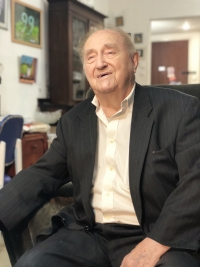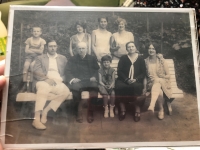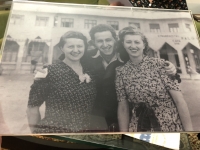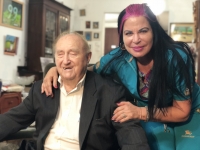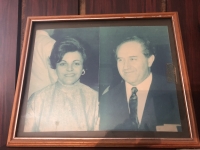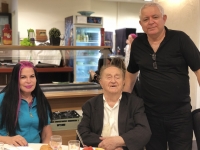“We thought the Germans would not come there and give us peace”
Mikuláš Škrek, was born on April 2, 1918, in the village Čarace near Zlaté Moravce, in the family of a businessman. He had four more sisters, Lucia, Edit, Irena and Magda. Mikuláš mentions his father as a very good man who helped people and was a great businessman. In Zlaté Moravce they owned a market, a cooperative farm and a barrelhouse. As a child, he attended the Folk School in Zlaté Moravce and later the grammar school in Bratislava. He also continued in his studies at the Business college, which was also based in Bratislava at Palisády forty four. During his studies he lived with his family. In December 1938, when he began to feel the deterioration of the situation, he tried to take his entire family to the Palestine. His father and mother and two sisters decided to stay in their birthplace. At the last minute, only he and his two other sisters, Edit and Lucia, fled together. His parents were eventually shot while escaping, and the remaining sisters perished in the camps. The journey to then Palestine took more than a month. There were more than seven hundreds people on board. They were without water for almost a month, they could only be cleaned with alcohol. Unfortunately, during the voyage, people also died. At the beginning, Mikuláš opened a restaurant and hotel in then Palestine. He sold both and currently has one larger hotel, managed by his son and daughter. In Israel, he met his future wife, Esther Gross, through friends. She also came from Slovakia, specifically from Komiatice. He always remembers her as an excellent and hardworking woman. Fortunately, he did not lose all his relatives in Slovakia. There are still seven families of Škrek in Košice. We are talking about a very wide branch in Košice. Mikuláš mentions that families of the Škrek also live in Levice and Banská Bystrica. He said all the time that until the advent of the war, he and his family had a beautiful life in Czechoslovakia.
